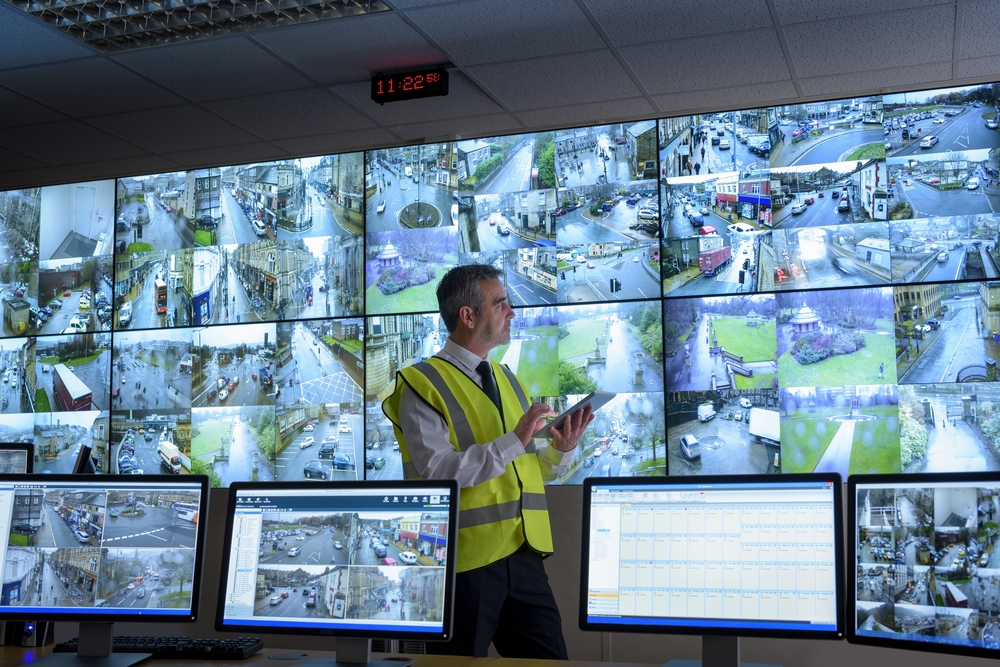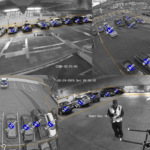What is the Future of Parking Enforcement?

Introduction
Technological advancements are revolutionizing parking enforcement, making urban mobility smarter and more efficient, which prompts the question: What is the future of parking enforcement?
Traditional parking management methods are quickly being replaced by advanced systems like OperationsCommander (OPS-COM), which utilizes technology such as License Plate Recognition (LPR) to streamline operations, enhance security, and improve user experiences while remaining compliant with the law.
OperationsCommander: The Next Generation of Parking Management
OperationsCommander (OPS-COM) is a robust parking and security management platform that integrates functionalities such as permit management, parking enforcement, violation processing, and payment systems in a single, connected cloud platform.
This cloud-based parking and security platform automates routine tasks, reduces administrative burdens, and ensures compliance through accurate record-keeping and reporting. Universities, cities, and organizations that need to streamline their parking management have successfully implemented OPS-COM to manage parking efficiently, demonstrating its versatility and effectiveness.
One standout client is the Town of Perth, Ontario which managed to increase their ticket collection rate to 91% by utilizing the OPS-COM platform.
License Plate Recognition: A Game Changer in Parking Enforcement
Offered by OperationsCommander, License Plate Recognition (LPR) technology employs cameras and specialized software to capture and analyze vehicle license plates in real-time.
LPR-equipped vehicles or stationary cameras can continuously scan and record license plates, identifying vehicles that overstay their permitted time or park in unauthorized areas. This automation reduces the need for manual patrols and increases coverage.
It also offers real-time enforcement as parking enforcement officers can receive instant alerts about violations, allowing for quicker response times and more effective enforcement.
This technology boosts security by swiftly identifying unauthorized vehicles, improves customer service, and eliminates the need for manual checks, thus saving time and resources. LPR systems are highly accurate and functional under various conditions, making them ideal for contemporary parking enforcement.
LPR technology enhances parking enforcement by automating monitoring, reducing human error, and increasing accuracy. It enables real-time alerts for quicker responses, improves revenue collection through efficient fine issuance, and minimizes unpaid fees.
It also improves customer service as LPR streamlines permit validation, improves space utilization, and enhances security for everyone by detecting stolen or previously flagged “problem” vehicles.
Future Trends in Parking Enforcement
Smart Cities and Parking Solutions
The demand for intelligent parking solutions will surge as cities transition into Smart Cities. Innovations like OPS-COM and LPR will be pivotal in developing smart parking systems that alleviate congestion, enhance user experiences, and improve efficiency.
Impact of Autonomous Vehicles
Autonomous vehicles (AVs) are set to revolutionize parking management by reducing the need for parking spaces in prime locations. Advanced systems like OPS-COM will be essential for managing and monitoring AV parking efficiently.
Sustainable Parking Practices
Environmental sustainability is becoming a key focus in urban planning. Future parking enforcement strategies will incorporate eco-friendly practices, such as promoting electric vehicle (EV) charging stations. Technologies like OPS-COM can support these initiatives by offering data-driven insights and efficient management tools.
The Role of Policy and Regulation
Progressive Policies
Effective parking enforcement relies on supportive policies and regulations. Governments and regulatory bodies must establish frameworks that foster innovation and ensure compliance.
Balancing Privacy and Security
As parking enforcement technologies advance, balancing privacy and security concerns is critical. Transparent data management practices and robust security protocols are essential for maintaining this balance.
Public Awareness and Engagement
Educating the public about the benefits of systems like OPS-COM can build trust and encourage adoption. Informational campaigns and pilot programs can promote new parking solutions and ensure their success.
Conclusion
Technology offerings such as OperationsCommander are shaping the future of parking enforcement. These innovations are set to make parking management more efficient, secure, and user-friendly. As urban environments evolve and demand for parking spaces increases, adopting advanced, cloud-based systems will be crucial for creating smarter, more sustainable cities.
FAQs
What is OperationsCommander (OPS-COM)?
OperationsCommander (OPS-COM) is an advanced parking and security management system streamlining parking operations. It offers a low-friction solution for permit administration, parking enforcement, and incident reporting, making parking and security management efficient and cost-effective.
How does License Plate Recognition (LPR) technology work?
LPR technology uses cameras and software to capture and analyze vehicle license plates in real time, enabling efficient parking regulation enforcement.
What are the benefits of integrating OPS-COM in parking management?
OPS-COM reduces administrative burdens, helps you increase revenue, ensures compliance through accurate record-keeping, and enhances user experience with its user-friendly interface.
How can LPR technology improve parking enforcement?
LPR technology enhances security, allows for data-driven decision-making, lowers labor costs, and saves time and resources through automated monitoring.
What role do policies and regulations play in parking enforcement?
Policies and regulations provide frameworks that encourage innovation, ensure compliance, and balance privacy and security in parking enforcement.
How can public awareness and engagement promote new parking technologies?
Informational campaigns and pilot programs educate the public on the benefits of new parking technologies, building trust and encouraging adoption.


